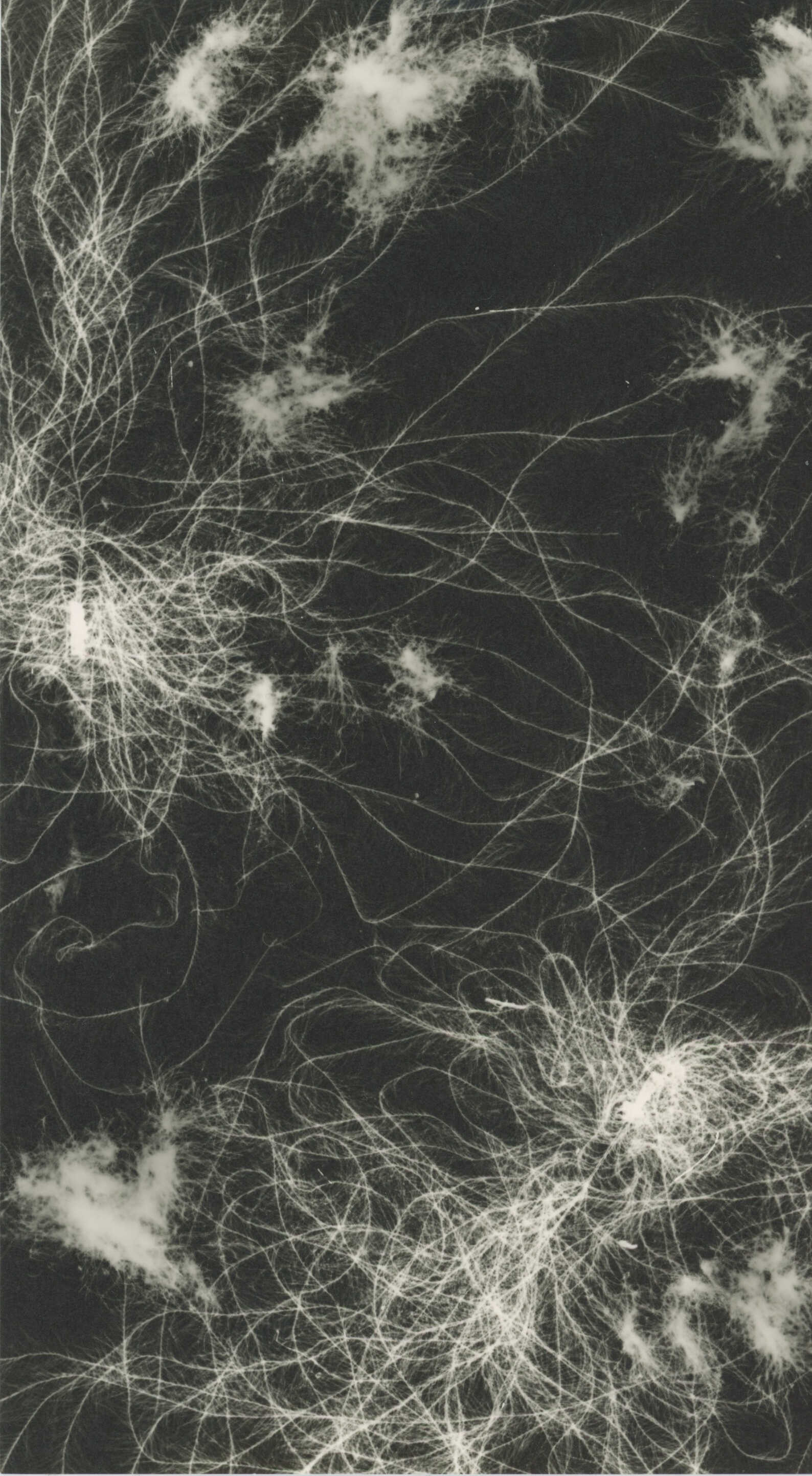2023-2024 Amit Rai's seminar: For a Revolutionary Becoming of Attention: Perception, Movement, Technicity Within and Against Racial Capital
The seminar is conceived and offered by Amit S.Rai
The seminar from Confluence to Confluence
Seminar participants second year: Dalia Maini, Cristina Ramos González, Federica Nicastro, Celeste Perret, Noam Youngrak Son and Astrée Duval.
Seminar participants first year: Antonia Rebekka Truninger, Echo Guo and Nada Gambier.
For a Revolutionary Becoming of Attention: Perception, Movement, Technicity Within and Against Racial Capital
INTRODUCTION:
Today, as Yves Citton reminds us, if you’re getting something for free you are the product. The surveilled prosumer of platform capitalism is a node of flows of desire and information. Desiring production in racial capitalism extracts surplus value from the flows of this information, from the modulation of the biopoliticised body’s affects. How do we attend to attention in these processes?
This module focuses then on a methodological question: how to diagram collectively the political economy of attention? We pursue this by studying the political economic and philosophical relations of attentional capacities. Through critical encounters with the revolutionary changes immanent to the everyday life of cognitive and racial capital, we will experiment with the affect of attention.
Transformations in the experience of attention under racial capital are also involved in the breakdown of age-old distinctions between intellectual and manual labour, work and leisure, use value and exchange value, mediation and the immediate, subject and object, private and public, and the relations between the unionised working class and the ’informalised’ and indebted precariat (Harvey’s 99%).
Bodies in their multiplicious difference, in their revolutionary becomings on a dance floor or in a general assembly, and the biopolitical body territorialised in racial capital: here we have a dialectical contradiction and an intensive network of desiring flows in medias res. We, the ones reading this digitized text off this glowing box, we, the ones with intersectionally complex and neurodiverse bodies, are networked through attentional capacities, intensifying and modulating (re-distributing, de-territorialising) how one affects and is affected by the media ecologies one inhabits.
The paradox is that we do not yet know what this commodified, financialised, assetised body can do. In racial capital, through the naturalised habits of an always anticipatory attention, what circuits of surplus value is your body conjoined to, what are their virtual-actual feedbacks, what are their queer and feminist, revolutionary and resistant becomings? How can we attend to what we do not yet know our revolutionary potential can actualise?
What is the difference between contemplation and attending in the artistic, political, or philosophical act? What does mundane, ready to hand, everyday habits of perception (different modes of attending) have to do with the history of colonization, the genocide against indigenous peoples from Palestine to Patagonia, the European enslavement of African peoples from the 15th century, and the non-linear history of the machinic phylum in racial capitalism? Which ecologies of practice draw on racial capitalism’s changing attentional and technical infrastructures for the generation of surplus value, and which for autonomous revolutionary becomings?
In this module we will explore the affordances of the non-binary attention which is needed for intersectional emancipation (something I have learned to ask better through study with DAI alum Lau ten Zeldam). Indeed, what we will develop further this year, this year of another Naqba, 2023, is how we decolonize attention against settler colonialism and anti-Blackness. For instance in our encounters with global North-based solidarity movements for the emancipation of the peoples of Palestine, for Zapatista liberation, and for Black Lives Matter how do we create the conditions of mutual and total, that is, intersectional liberation? This is what we mean by the revolutionary becoming of attention.
This year’s seminar continues with the problematisation of the method of attending to attention. We will study this question/problem (Deleuze)/promise (Haraway)/entanglement (Barad)/affect (Manning and Massumi) called attention under racial, heteronormative, ableist capitalism (Robinson, Moten, Silva, Wilderson, Hartman). To study collectively by breaking decisively and repeatedly from extractivist or expropriating logics and attentional practices of research, knowing and becoming—to study collectively not merely possible but potentialising ecologies of attention, one that moves from a contemplation of “curious objects” (racial and capitalist fetishisms) to an active deterritorialisation of habit, memory, temporality, technology, and creativity in digital and analogue media ecologies, both immediate and always already mediated.
If the conditions of our possibility are bound up with the fact that we, in our body’s, in our attentions—we are the products of racial capitalism, then finding collective and revolutionary ways of attending to and otherwise practicing attention is necessary for intersectional emancipation. That is the wager of this module.
Assignment:
Keep an attention diary every day for three weeks: Record in whatever way you want (poetry, prose, audio, phone movie clip, something else) events of attention in habits, routines, consumption, and creative work. Check the app usage on your mobile phone, make a diagram of the relations of force, value, and sense that you can intuit from your usage chart. What for you would be a revolutionary becoming of your attention ecology?
Possible Readings:
Amaro, R.. The Black Technical Object: On Machine Learning and the Aspiration of Black Being. National Geographic Books, 2023.
brown, maree adrienne. Emergent Strategy: Shaping Change, Changing Worlds. Chico, CA: AK Black, 2017.
Bueno, C. C.. The Attention Economy: Labour, Time and Power in Cognitive Capitalism. Rowman & Littlefield, 2016.
Citton, Yves. The Ecology of Attention. John Wiley & Sons, 2017.
Cole, T. Black Paper: Writing in a Dark Time. Chicago: University of Chicago Press, 2023.
Crary, Jonathan. “Spectacle, Attention, Counter-memory.” October, 50, (1989): 97-107.
Cubitt, S. Finite Media: Environmental Implications of Digital Technologies. Durham, NC: Duke University Press, 2016.
Cusicanqui, Silvia Rivera. “Ch’ixinakax utxiwa: A Reflection on the Practices and Discourses of Decolonization.” The South Atlantic Quarterly 111, nr. 1 (2012): 95-109.
Da Silva, D. F. “On Difference Without Separability.” In Catalogue of the 32a São Paulo Art Biennial, ”Incerteza viva”(Living Uncertainty), 57-65. Sao Paulo, 2016.
Deleuze, Gilles. Spinoza: Practical Philosophy. City Light Books, 1968.
Gilmore, Ruth Wilson. Abolition Geography: Essays Towards Liberation. London: Verso Books, 2022.
Gilroy, P. Postcolonial Melancholia. New York: Columbia University Press, 2005.
Guattari, Felix. The Three Ecologies. Bloomsbury Publishing, 2005.
Haiven, M. Art After Money, Money After Art: Creative Strategies Against Financialization. London: Pluto Press, 2018.
Harney, Stefano, and Fred Moten. The Undercommons. 2013.
Harney, Stefano, and Fred Moten. All Incomplete. London: Minor Compositions, 2021.
Heidegger, Martin. “The Question Concerning Technology.” In The Question Concerning Technology and Other Essays. New York: Garland, 1977.
Lugones, Marìa. “Toward a Decolonial Feminism.” Hypatia 25, no. 4 (2010): 742–59. https://doi.org/10.1111/j.1527-2001.2010.01137.x.
Marx, Karl. “On the Organic Composition of Capital.” In Capital Volume 3: Chap. 8; and “On So-called Primitive [Originary] Accumulation.: In Capital Vol. 1: Chap. 26.
Moten, F. Black and Blur. Durham, NC: Duke University Press, 2017.
Nichols, R. Theft is Property! Dispossession and Critical Theory. Durham: Duke University Press, 2020.
Ruiz, Sandra, and Hypatia Vourloumis. The Alleys. 2023.
Sharpe, J., & Spivak, G. C. “A Conversation with Gayatri Chakravorty Spivak: Politics and the Imagination.” Signs: Journal of Women in Culture and Society, 28, nr. 2 (2003): 609-624.
Singh, N. P. “On Race, Violence, and So-called Primitive Accumulation.” Social Text, 34, nr. 3 (2016): 27-50.
TallBear, Kim. “Dossier: Theorizing Queer Inhumanisms: An Indigenous Reflection on Working Beyond the Human/Not Human.” GLQ: A Journal of Lesbian and Gay Studies 21, nr. 2-3 (2015): 230-235.
Terranova, T. "Attention, Economy and the Brain.” Culture Machine, 13 (2012).
Vishmidt, M. Speculation as a Mode of Production: Forms of Value Subjectivity in Art and Capital. Leiden: Brill, 2018.
Wa Thiong'o, N. Decolonising the Mind: The Politics of Language in African Literature. East African Publishers, 1992.
Possible Movies:
Steve McQueen (dir.), Widows, 2018.
Peter Strickland (dir.), 2012. Berberian Sound Studio.
John Akomphrah (dir.), The Stuart Hall Project, 2013.
Jack Hazan and David Mingnay (dir.), Rude Boy, 1980.
Ken Loach (dir.), Bread and Roses, 2000.
Lars van Trier (dir.), The Boss Of It All, 2006.
Basu Chatterjee (dir.), त्रियाचरित्र | Triyacharitra, 1994.
Muzaffar Ali (dir.), गमन | Departure, 1978.
John Akomphrah (dir.), Last Angel of History, 1996.
Luis G. Mérida (dir.), Simondon of the Desert.
Bernard Stiegler. “Simondon’s Notion of Information and Its Limits.” Youtube, user: Centre for Critical Thought, 22 November 2018. https://www.youtube.com/watch?v=5n398XAyapk


